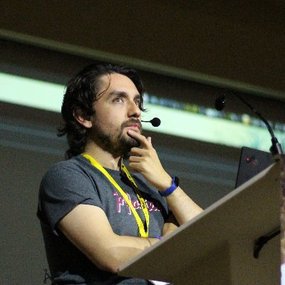Thursday
Room 2
13:40 - 14:40
(UTC+02)
Talk (60 min)
The role of new languages in the Future of the Qt Ecosystem
User Interfaces (UI) are an essential part of our lives, we use them every day, in all our devices, everywhere we go. At the same time, we see new technologies and programming languages enriching our tech scenario, but in some cases, they don’t have the necessary modules to produce those UIs.
Qt is currently a widely used framework, that has proven to be mature enough to be a industry-quality solution for people that want to develop User Interfaces, however being written in C++ limits the people that can use it. Luckily, a few bindings to newer languages, like Qt for Python have been around to open the doors to new generations of developers, but the problem is not solved. Writing bindings to new languages or even re-writing modules in new languages is an enormous task that needs a better solution.
With that in mind, one of the Qt Framework goals is to find ways of using our technology that has been around for a long time, in a quick manner, without requiring a lot of knowledge of programming languages that are not familiar with our stack.
On this talk, you will learn about a new initiative within the Qt Project that aims to unlock the Qt framework’s features and technology into more programming languages without the need of relying on bindings or learning C++.
No previous experience in Qt nor C++ is required for attending this talk.
